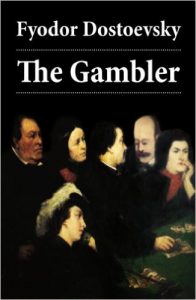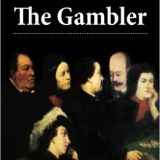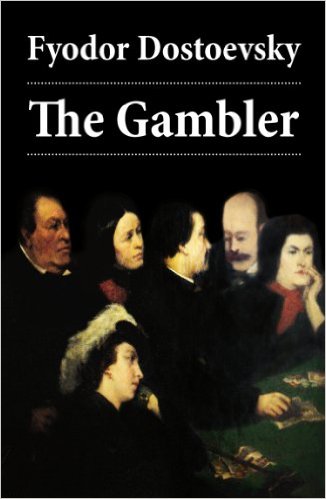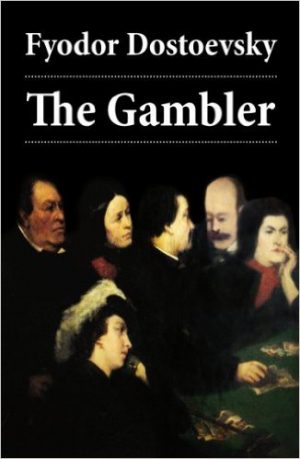The Gambler – Fyodor Dostoyevsky – 1866
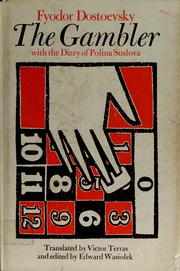
Posted by Steven on 23/7/2006, 9:16:31
There is an online version at Project Gutenberg that is a translation by C. J. Hogarth. Before I started reading The Gambler, I compared it to my print copy, which is a translation by Constance Garnett.
In the first paragraph, Hogarth’s translation says that “a French lady” was expected for lunch. Garnett says “the little Frenchman.” Quite a difference!
The French person who actually arrives for lunch is De Grieux, a major character in the novel and definitey male. I would certainly be wary of a translation that makes such an error in the opening paragraph. Even if the Russian diminutive and feminine are the same, the translator should have been familiar enough with the context to make the right choice.
Steven
~
Posted by LadyPurple on 24/7/2006, 5:29:42
I found two translations – have not really compared them, though.
1.
http://www.online-literature.com/dostoevsky/the_gambler/
2.
http://www.pagebypagebooks.com/Fyodor_Dostoevsky/The_Gambler/
Neither give the name of the tranlator.
Even if they are not the best translation, at least you can read it and in many parts it will be fine.
Friederike
~
Posted by Lale on 8/8/2006, 10:33:20
I started this book last night. Luckily it is the “Little Frenchman” translation 🙂
Lale
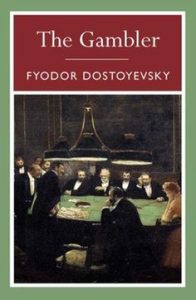
Posted by Lale on 11/8/2006, 21:47:33
I am loving The Gambler. Polina is very interesting. I can’t wait to find out where she is coming from (I mean, what her problem is). No spoilers!
The narrator knows how gambling works, and yet, and yet… We all do it in one way or another. With abusive lovers and friends, with money, with food and alcohol, and with games of chance.
Lale
~
Posted by Lale on 13/8/2006, 10:09:38
The relationship between Polina and the narrator is so sick that it annoys me. It is so bizarre and undignified (for both parties) that I feel uncomfortable reading it. Are they displaying the usual abuser/enabler relationship we sometimes see around us, or, is that just a presentation of the surface and there is something more underneath?
Lale
~
Posted by Lale on 13/8/2006, 10:16:33
Participate in this little game:
Those who have read the book and those who haven’t read the book can both play this game. Just don’t look it up in your books or on the internet. Come up with the answer on your own.
Here is the game: You are supposed to write the next sentence.
“I staked twenty friedrichs d’or on pair straight away, and won, staked again and again won, and so on two or three more times. I think about four hundred friedrichs d’or came into my possession in five minutes.”
So, what do you think comes after this? Write the next sentence.
Lale
~
Posted by Steven on 13/8/2006, 12:40:31
: “I staked twenty friedrichs d’or on pair
: straight away, and won, staked again and again won,
: and so on two or three more times. I think about four
: hundred friedrichs d’or came into my possession in
: five minutes.”
:
: So, what do you think comes after this? Write the next
: sentence.
If I were the one playing, the next sentence would read: “Too bad I wasn’t playing with REAL money.”
Steven
~
Posted by Christopher on 13/8/2006, 19:48:39
Then, I staked twenty friedrichs d’or on impair, and lost straight away, staked again and again lost, and so on two or three more times. I think about eight hundred friedrichs d’or left my possession in five minutes.”
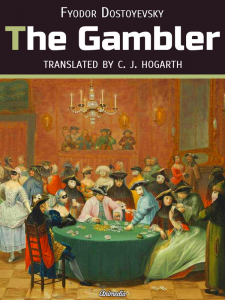
Posted by Lale on 16/8/2006, 9:12:54
: Then, I staked twenty friedrichs d’or on impair, and
: lost straight away, staked again and again lost, and
: so on two or three more times. I think about eight
: hundred friedrichs d’or left my possession in five minutes.”
That is of course exactly what happens.
Dostoyevski continues thus:
“I ought to have left at that point … I staked the permitted maximum – 4000 gulden – and lost. Then, getting excited, I pulled out all I had left, staked it in the same way, lost again, and after that left the table as if I had been stunned.”
~
Posted by LadyPurple on 17/8/2006, 5:32:12
Well, and that is exactly what D does himself in Summer in Baden-Baden – only in real life he had Anna to borrow money from…
Friederike
~
Posted by Lale on 13/8/2006, 10:25:04
I decided to memorize, and use in conversation, this phrase from The Gambler:
“And what a lot of clamour and uproar and talk and noise! And what a lot of confusion and disorder, stupidity and vulgarity it all comes to.”
Lale
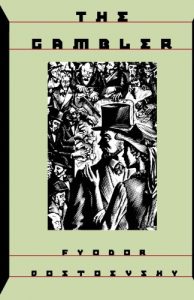
Posted by Lale on 18/8/2006, 10:49:37
I enjoyed The Gambler very much. Although, I must say, I didn’t undersand many things. Polina! Where is she coming from? Is she a nutcase? Did she really love Alexis Ivanovich? Why did she move in with Mr. Astley? I could not feel any sympathy towards Polina. She was way too manipulative and instable for my taste. I didn’t see anything positive in her, no redeeming quality.
Towards the ends of the story, Blanche amused me greatly. She was so straight forward with our narrator, it was hilarious.
At the back of my book, it says “… The Gambler conveys all the intensity and futility of an obsession.” I agree. Not too long ago, I read Peter Carey’s “Oscar and Lucinda”, a fabulously written, gripping story which I would recommend to all my friends. O&L was also about gambling and I loved the book, but it doesn’t even come close to the “intensity” found in The Gambler, a story quarter the size of O&L.
Lale
~
Posted by Lale on 18/8/2006, 14:09:33
My copy has a portion of William Powell Frith’s “The Salon D’Or” on the cover. It was painted in 1870 in Homburg. Since The Gambler was written in 1866 and also takes place partly in Homburg, this painting is, I think, a very close depiction of what Alexis Ivanovich was seeing when he went to the “tables”.
The interesting thing is that the original of this painting is right here, in our good old Ottawa. It is in the National Gallery of Ottawa, Canada.
Lale
~
Posted by LadyPurple on 20/8/2006, 9:47:45
Homburg is a spa town – with a casino – not far from Frankfurt. It was probably as famous as Baden Baden at some time and attracted many famous gamblers. There is still today a small orthodox church in the central park.
My mother lives there so I know it quite well – not the casino of course. It is a weathly town – nothing was destroyed during WWII and there are stories why that was.
Friederike
~
Re: Salon D’Or in Homburg
Posted by Lale on 20/8/2006, 10:19:23
: It is a weathly town – nothing was destroyed during WWII
: and there are stories why that was.
The casino?
Or just wealth bought exemption from bombing?
Lale
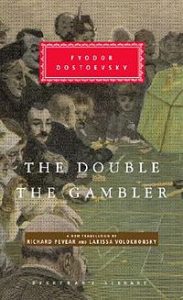
Posted by Steven on 18/8/2006, 14:26:02
I liked it very much as well. It’s also a novel that you appreciate much more for knowing it’s background – that Dostoevsky was a compulsive gambler himself, that he was dicating the book under a deadline, and that he was falling in love with the secretary to whom he was dictating.
: I enjoyed The Gambler very much. Although, I must say, I
: didn’t undersand many things. Polina! Where is she
: coming from? Is she a nutcase? Did she really love
: Alexis Ivanovich? Why did she move in with Mr. Astley?
: I could not feel any sympathy towards Polina. She was
: way too manipulative and instable for my taste. I
: didn’t see anything positive in her, no redeeming quality.
Yes, Polina is demanding, unpredictable and inscrutable. She is just the way a man in love perceives the object of his affections when she is ambiguous about returning those feelings. I think the portrayal was very realistic – at least as far as women often appear from a man’s point of view. Dostoevsky leaves the mystery of her true feelings and motivation intact.
: Towards the ends of the story, Blanche amused me
: greatly. She was so straight forward with our narrator, it was hilarious.
She really rubs it in, doesn’t she? And Alexey just meekly accepts what she’s doing to him. She is somewhat like Grushenka in Brothers Karamazov. Evidently Dostoevsky had some life experience with brazen, ambitious, manipulative women.
: At the back of my book, it says “… The Gambler
: conveys all the intensity and futility of an obsession.” I agree.
Intense, frenzied and loosely structured – I think these are all qualities that come from the book’s being written the way it was, and it is the better for them. Its untidiness makes it more realistic to me – like a piece of real life, complete with unresolved conflicts and loose ends, rather than a deliberately crafted story.
Another theme to the novel (as with many Russian novels) is “what does it mean to be Russian?” I’m not sure which character it is who argues that risk-taking, impatience, and a fatalistic indifference to the future are all Russian characteristics. I think the very style of The Gambler reflects this. It rushes headlong into the plot without introduction and dares you to care about any of the characters.
